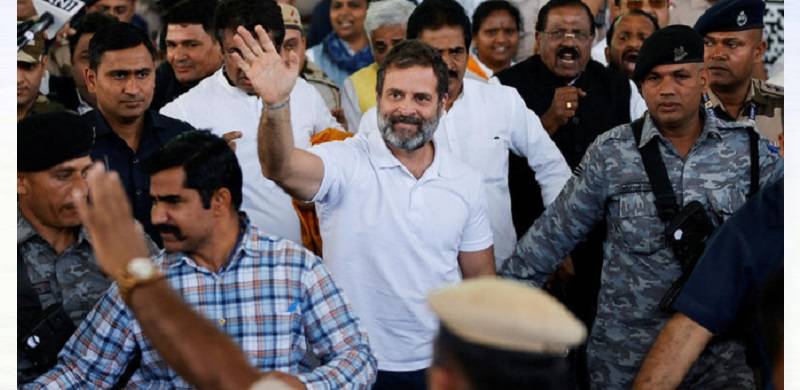
India's parliament on Friday disqualified the leader of the Congress party Rahul Gandhi, a day after he was handed a two-year jail term in a defamation case.
According to a notice of the Parliament, Gandhi "stands disqualified from the membership of Lok Sabha", the lower house of parliament.
The 52-year-old opposition leader was found guilty of a 2019 public speech, where he said, "Why do all these thieves have Modi as their surname? Nirav Modi, Lalit Modi, Narendra Modi."
Gandhi was convicted by a Gujarat court, and subsequently granted bail. He currently remans on bail for a month.
Meanwhile, Congress leaders say they are in the process of filing an appeal in a higher court against the decision.
“This battle will be fought both legally and politically,” a spokesperson of the party said after the verdict.
He went on to add that, “Rahul Gandhi will not stop from asking difficult questions and exposing crony capitalism and this government’s active role in promoting and protecting it.”
According to an analysis, it is true that ever since the BJP came to power in 2014 there has been a sustained attack on institutions in India, on freedom of speech and media, on liberty, on minorities, etc. However a deeper analysis is called for.
The Constitution of India, promulgated in 1950, provided for parliamentary democracy, as practised in England. In actual practice parliamentary democracy in India is largely run on the basis of caste and religious vote banks, as everyone in India knows.
In other words, when most Indians go to vote in elections, they do not see the candidate’s merit, whether he is a good man or bad, educated or not, but only see his caste or religion (or the caste or religion his party represents ), nor do they consider vital issues like poverty, unemployment, price rise, etc. In fact that is why there are so many persons with criminal backgrounds in our legislatures.

